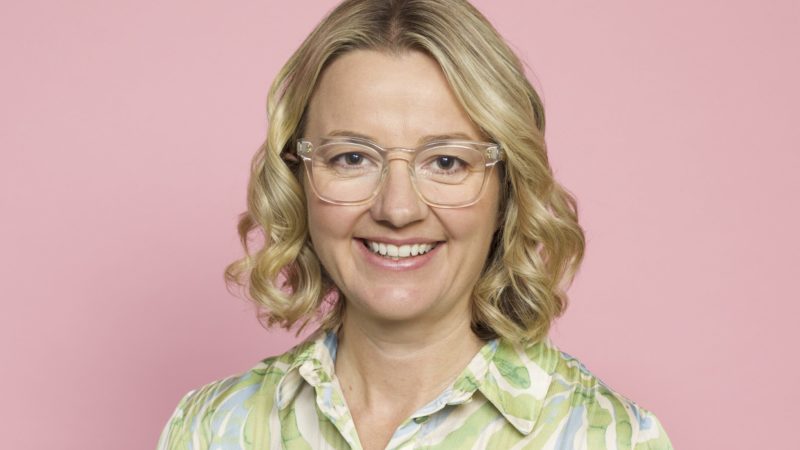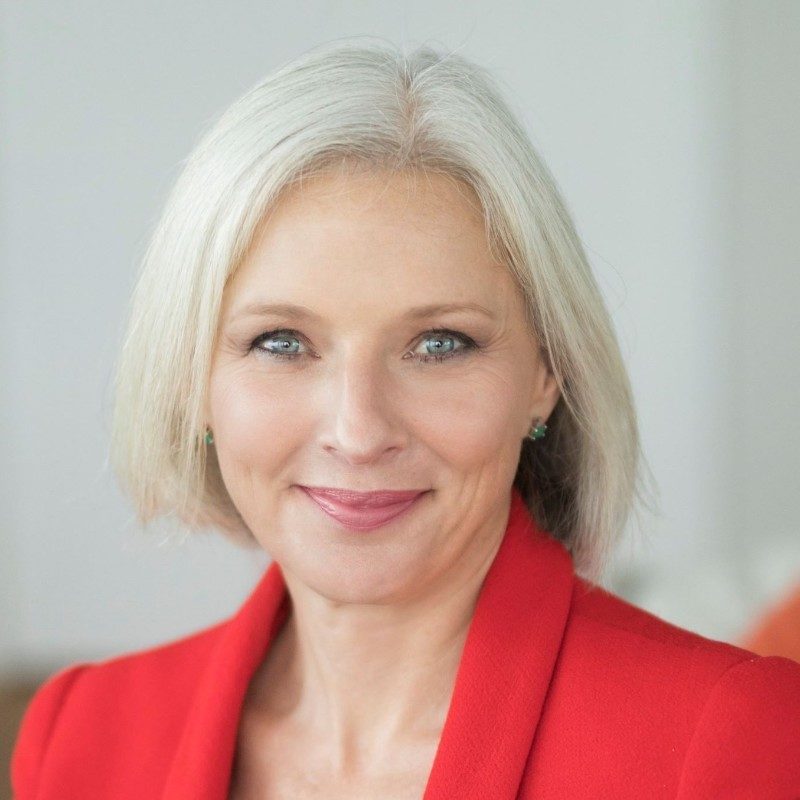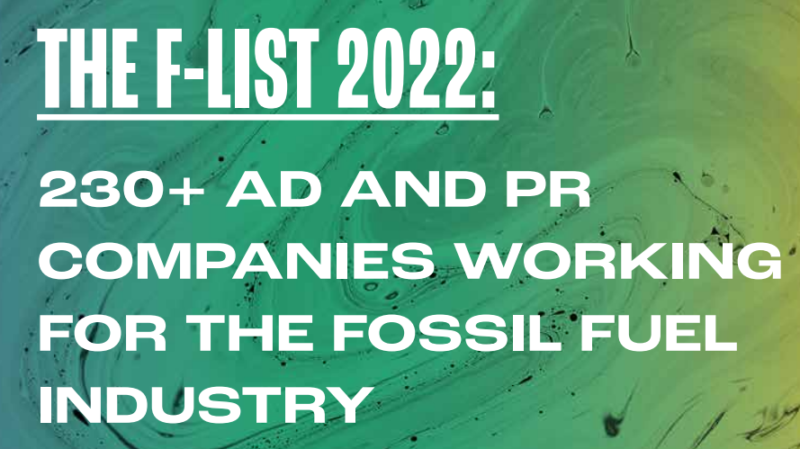Working with clients that do damage, or aspire to do better. Should agencies have to choose?
It is time for agencies to choose whether or not they will work with polluters, according to Think HQ’s Jen Sharpe. “To me it’s about choosing a side – it’s either working with clients that are actually doing damage to our world, or choosing clients who are aspiring to do better”.
Speaking on this week’s Mumbrellacast alongside Comms Declare founder Belinda Noble, Sharpe expanded on her op-ed from earlier this week, arguing that hiding behind great creative and winning awards has come at its detriment of the sector.

Think HQ’s Jen Sharpe: ‘Choosing who is a good partner is really tricky’
“I’ve always wondered how it is possible that an agency can win an award for working with a big gambling company and then win another award for working with a big charity that is affected by chronic gambling and gambling addiction.”
“I just don’t understand how the force of great creative can somehow, dissolve the ethical conflict that sits in that scenario.”
Sharpe said it is time for agencies to consider the impact its creative is having on the world: “if it’s having a negative impact, is that something that the agency is comfortable in sitting with?”
“And if it is, then don’t pretend that the great creative that’s leading to positive social impact is the dominant element of your business. Because it’s not, it’s often a side business or it’s often a pro bono gig, or it’s often a low bono gig that is going to win an award. But the core business is doing damage, and there’s a commercial decision that has been made that enables that to happen.”

Belinda Noble: ‘You need to ask hard questions of your clients’
It is not always possible for agencies to suddenly abandon a client base it is reliant on and built itself on though. Sharpe’s Think HQ was founded on the purpose of working with clients that have a positive social impact, and she said through working with government and statutory bodies, philanthropists, and non-for-profits, the agency has grown to over 80 people. Now, Sharpe is also working with more aligned corporate partners in the healthcare, hospital, education, and renewable energy sectors too.
Noble admitted that beginning this transition is hard: “if you’re in that position, it’s certainly a difficult one”.
“What I would suggest is that you in interrogate or investigate the claims that your client is making and ensure that you are not part of the problem and that you’re not greenwashing for them.”
She said this requires agencies to “bone up on the basics” of emissions, as well as ask the difficult questions of clients, in order to ensure you’re doing the most accurate work possible.
Against the argument that there is still use for the major energy providers, which still play a major role in our economy, and of which some have shown green shoots of an attempt to “be greener”, Noble said the evidence still suggests otherwise.
“We would say don’t work with any of these companies. They’re just not on the right path.”
But also actually choosing who is a good partner and who isn’t is sometimes really, really tricky, Sharpe also ceded.

Noble said transparency has become one of the biggest issues in the industry, with a recent study from Comms Declare, “Fueling Fantasies” finding “only three agencies actually ranked well on transparency”.
“Most were in the middle and a couple also ranked very poorly, and that was based on what they have on their website, what they will actually, admit to working on and so forth.”
Agencies “can’t have it both ways” said Noble, as she added, “staff and other clients have an absolute right to know who you are working with and what sort of work that you’re doing”.
Sharpe continued, saying agencies need to be prepared to be more transparent, and able to disclose all the clients they work with, “so that bigger corporates who are looking to achieve their ESG goals are actually very consistent in how and why they choose agencies as well”.
“I think the risk is if there are agencies that are happy to continue to work with clients that are becoming known as being not illegal, but unethical, then there’s a risk that they’re not going to win other work as a result of that commercial decision.
“So it’s kind of damned if you do, damned if you don’t in a way. And I think it’s particularly hard for globals because globals obviously have so many different client groups, depending on the country and even depending on the state.”
Sharpe concluded: “So it’s certainly not an easy thing to transition away from, but I suspect pressure from shareholders, pressure from staff, and pressure from customers as well may actually at least lead these big globals to start thinking about the choice of clients.”
Listen to the full conversation on this week’s Mumbrellacast.
What do you think? Have your say in the comments below.



 Linkedin
Linkedin
Gambling, alcohol and fast food companies pay the taxes that fund the campaigns you and your agency have become rich off. You really should be thanking us.
User ID not verified.
I have to disagree with the sentiment here. Why is it our job as an industry to play the moral arbiter? Where does it stop? Gambling? Fast food? Alcohol? Auto? What about companies that employ forced labour, either directly or indirectly (check out Save Uighar .org and let’s see if the author admits to owning and then wanting to give up any of those brands listed, given that in her own words, it’s about “choosing a side”).
It’s all well and good when you own your own agency and can select the client base, but for holding co’s who ultimately report to their shareholders, profit will also trump purpose, regardless of how many values / promises / visions are put in place.
User ID not verified.
Hi there Slippery Slope
Not to speak on behalf of either Jen or Belinda here, but Jen does point out that it is “particularly hard for globals” for a number of reasons, and that is ultimately why she started her own agency, so she was in control of it.
The key tenet to her point I gathered, is she is not telling agencies they have to do the same thing as she has, but that they should choose one way or another, and even then it is still difficult.
Cheers,
Calum – Mumbrella
It’s interesting. There’s one agency that makes 80% of its revenue on tobacco. They make so much money it’s not funny. But nobody knows that they do.
User ID not verified.
A lot of talk about what agencies should do, as a business, but the real story is the individuals that have to work on these dicier clients. It’s common to be assigned to clients not of your choosing by your boss, and having to work on a client that goes against your principles is awful.
User ID not verified.
Have your say